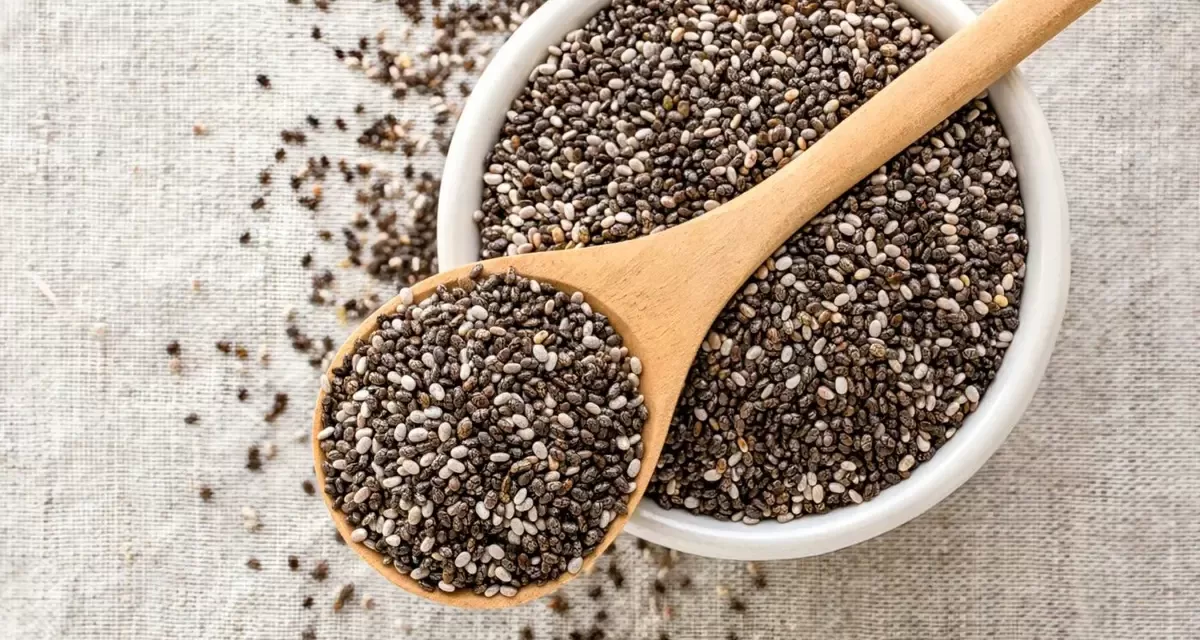In recent years, the global obesity epidemic has raised concerns about health and well-being, driving the search for simple dietary solutions that could aid in weight management and improve heart health. Among the many touted superfoods, chia seeds have garnered significant attention for their rich nutrient profile and versatility. From breakfast puddings to nutrition bars, these tiny seeds are now a common feature in various diets around the world.
The Nutritional Powerhouse
Chia seeds are promoted for their impressive concentration of alpha-linolenic acid (ALA), a type of omega-3 fatty acid, and their plant-based protein content. Additionally, they are a rich source of fiber, offering both soluble and insoluble types that absorb liquid and form a gel-like consistency. This fiber is believed to help slow carbohydrate breakdown, which may contribute to more stable blood sugar levels after consumption. Some claim that chia seeds can help keep you feeling full, reduce cravings, and maintain consistent energy throughout the day.
Despite these claims, experts caution that chia seeds should not be seen as a magic bullet for dramatic weight loss or improved cardiovascular health. Dr. Abbas Karimi from the Tabriz University of Medical Sciences emphasizes that while chia seeds can be a beneficial addition to a balanced diet, the effects on weight and overall health may not be as pronounced as some have hoped.
Chia Seeds and Cardiovascular Health
Research has explored the potential of chia seeds to influence cardiovascular markers like blood pressure, cholesterol levels, and inflammation. Some studies suggest that chia seeds may help reduce systolic blood pressure by a few points, likely due to their magnesium and potassium content, which supports vascular function and promotes blood vessel relaxation. However, not everyone experiences these benefits, as individual factors such as diet, lifestyle, and genetics play a significant role.
Chia seeds’ high ALA content has also raised interest for its potential to lower C-reactive protein (CRP), a marker of chronic inflammation linked to cardiovascular disease. Although the seeds’ antioxidant polyphenols may help combat oxidative stress, the results can vary depending on the individual’s baseline health and dietary habits.
The Weight Loss Debate
While chia seeds are often promoted as a weight-loss aid, research has shown mixed results. Some studies report modest reductions in waist circumference, while others reveal little to no impact on overall weight or body mass index (BMI). A recent review by Dr. Karimi and colleagues found that, while chia seeds might help reduce waist size, they do not significantly lower blood sugar levels or cholesterol in most people. Experts recommend viewing chia seeds as a small piece of the puzzle, rather than a stand-alone solution to metabolic concerns.
Incorporating Chia Seeds into Your Diet
Chia seeds are incredibly versatile and can be easily incorporated into a variety of meals. Two tablespoons can provide a healthy dose of fiber, fats, and protein without drastically changing the taste of a dish. Popular ways to enjoy chia include adding it to oatmeal, yogurt, or smoothies. Ground chia seeds can be sprinkled on salads, mixed into baked goods, or used as a flour substitute. Whole seeds work well in breakfast bowls, but ground seeds may release nutrients more effectively.
However, moderation is key—especially for those not accustomed to a high-fiber diet. Since chia seeds absorb water and expand, it’s important to drink plenty of fluids to prevent digestive discomfort. Gradually increasing chia intake can help avoid bloating or other digestive issues.
Final Thoughts: Consistency is Key
While chia seeds may not lead to dramatic transformations overnight, they can be a valuable part of a sustainable, nutrient-dense diet. Studies suggest that consistent inclusion of chia seeds in meals, over time, may lead to small but meaningful improvements in metabolic markers, such as waist size or inflammation levels.
As research continues to unfold, it’s clear that chia seeds are far from a cure-all. They should be seen as one component of a broader, healthy lifestyle—comprising a balanced diet, regular physical activity, and other heart-healthy habits.
Disclaimer: This article is based on available scientific research, but individual results may vary. It is always recommended to consult with a healthcare professional or nutritionist before making significant changes to your diet or lifestyle.












